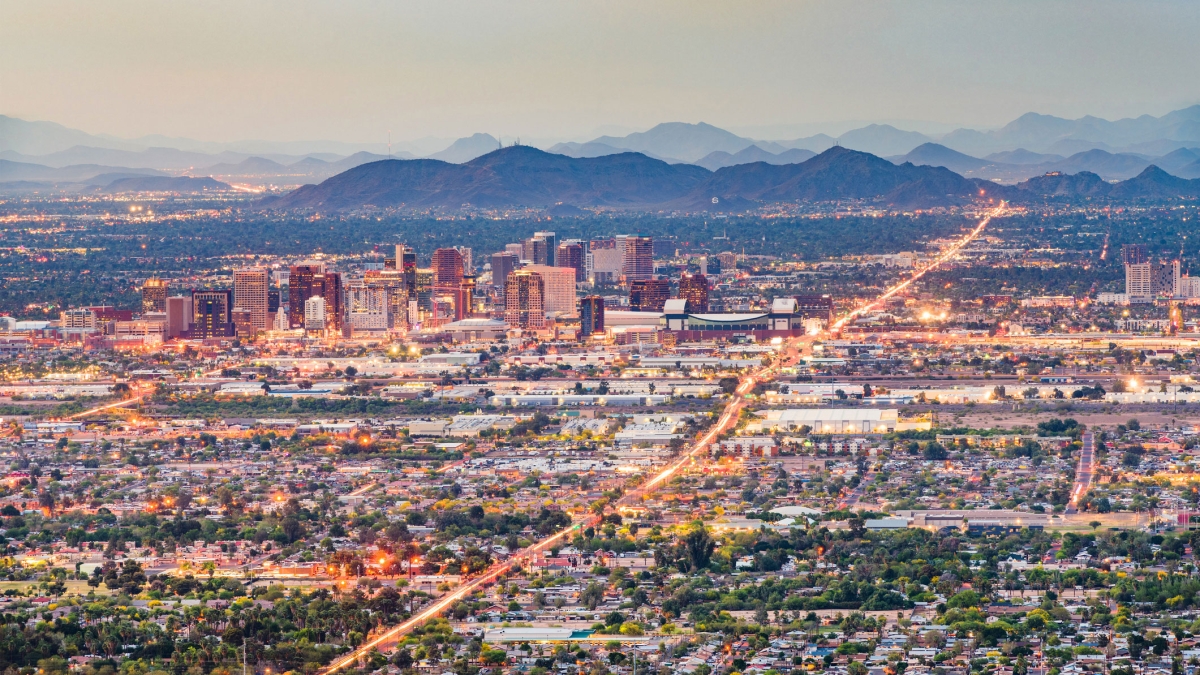Arizona State University today convened the inaugural meeting of the Council of Resilience Leaders, its latest effort to advance resilience-promoting strategies as communities in Arizona and around the world search for answers to complex issues from climate change to economic, health and social inequities.
The newly formed council comprises 14 influential and diverse leaders from the public, private, nonprofit and advocacy sectors. The group will work together to support ASU’s Knowledge Exchange for Resilience in its mission to leverage the university's intellectual resources and partners to build Maricopa County’s capacity to withstand future shocks and stresses.
“Arizona is experiencing rapid changes in the demand for health care and education, economic expansion, and social and environmental evolution, and as 2020 showed us, we can’t wait around for answers,” ASU President Michael Crow said. “Now more than ever, we need to work together as leaders to address the multifaceted challenges confronting our state and find better ways to ensure the overall well-being and prosperity of the communities we serve.”
The city of Phoenix, Maricopa Association of Governments, Salt River Project, Arizona Public Service, AARP, Greater Phoenix Leadership, Chicanos Por La Causa, Black Chamber of Arizona, Wildfire, Intertribal Council of Arizona, State of Black Arizona, Children’s Action Alliance, The Arizona Republic and the Hispanic Chamber of Commerce were among the organizations represented at today’s gathering at Mirabella at ASU in downtown Tempe.
The council is one of several resilience-building initiatives supporting the Knowledge Exchange for Resilience, which launched in 2018 with a $15 million grant from the Virginia G. Piper Charitable Trust. Other recent endeavors include the Resilience Fellows, who conduct individual and collaborative research on resilience themes, and the Recognition of Resilience, which honors local entities for their innovative and inspirational efforts to strengthen community resilience.
Additional information about the Knowledge Exchange for Resilience and the council’s membership is available at resilience.asu.edu/council-of-resilience-leaders.
ASU’s continued work to strengthen local resilience is another example of its ongoing, institutional commitment to take fundamental responsibility for the economic, social, cultural and overall health of the communities it serves.
Top photo by Sean Pavone/iStock
More Environment and sustainability

A world full of plastic ... not fantastic
Editor’s note: This is the seventh story in a series exploring how ASU is changing the way the world solves problems.When Timothy Long’s kids were growing up, he never let them toss…

Team wins $10M XPRIZE Rainforest competition for novel solution
Several Arizona State University experts are on a team that created a new way to put a price on the rainforest in order to save it, and on Friday they won the top award in the prestigious $10 million…

ASU President Michael Crow named to TIME100 Climate list
Arizona State University President Michael Crow has been named to the 2024 TIME100 Climate list of leaders and innovators driving real climate action.The list includes leaders across a range of…
